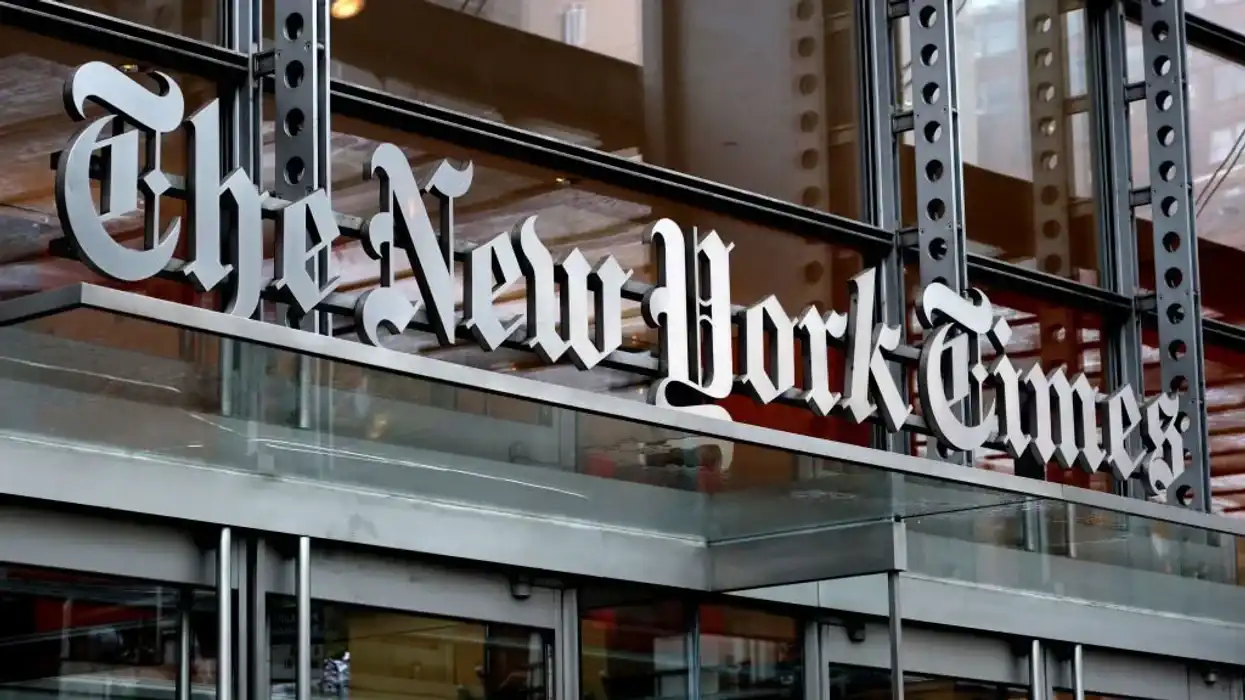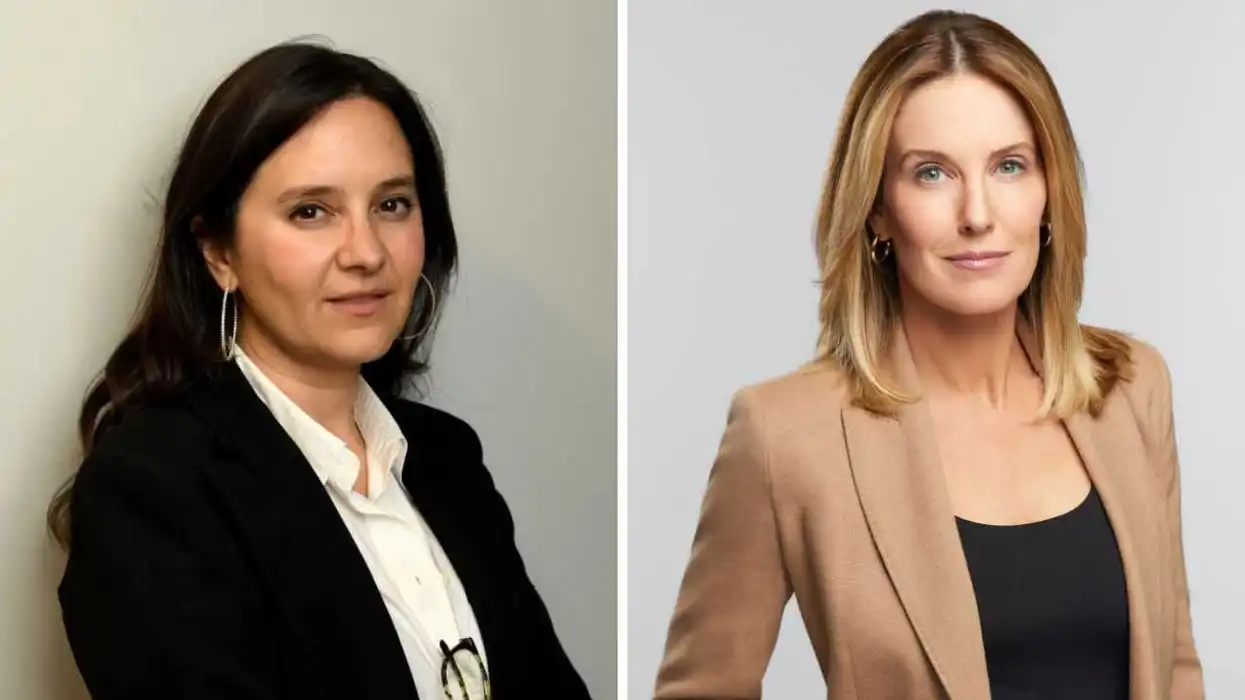
© 2025 Blaze Media LLC. All rights reserved.
New York Times is back with another elitist hot take, this time claiming 'small donors are a big problem'
August 30, 2023
Days after publishing an op-ed pushing the claim that "elections are bad for democracy," the New York Times is back with another piece decrying the increasing involvement of the populace in politics and the ongoing dissolution of the liberal status quo.
This time around, what's at issue is not that Americans wield too much power at the ballot box, but that they can also use their wallets to dictate change in Washington by way of political donations under $200.
It is apparently problematic that those both on the left and the right without deep pockets might wield political agency and the ability to influence who ultimately represents them. After all, that might mean politicians will be pressed to take "polarizing" stances that might make the establishment uncomfortable.
According to Thomas Edsall's Wednesday column, it may additionally help further depreciate the two major political parties' power to "shape the election process," affording outsiders with allegedly "extreme" views the means to make their way to Washington and demand more from it.
Citing findings published in a 2022 National Bureau of Economic Research paper, Edsall noted that the number of small donor campaign contributions has skyrocketed over the past two decades, from roughly 5.2 million individual donors in 2006 to 195 million in 2020. During the same period, the average size of the contributions reportedly also fell from $292.10 to $59.70.
Richard Pildes, a law professor at New York University, told Edsall in an email, "Individual donors and spenders are among the most ideological sources of money (and are far more ideological than the average citizen). That's particularly true of small donors."
In practice, this appears to bode poorly for establishment politicians. Populist candidates on the right and left alternatively appear to benefit.
Pildes indicated in a 2019 article for the Yale Law Journal Forum that former President Donald Trump "became the most successful candidate ever in raising money from small donors, whether measured in total dollars raised or as a percentage of his overall fundraising. Small-donation dollars made up 69% of the individual contributions to Trump's campaign and 58% of the campaign's total receipts."
Before the rise of small donations, such outsiders may not have stood a chance against the political establishment, particularly if the dominant parties kept their coffers closed to them.
Thad Kousser, a political scientist at the University of California, San Diego, told Edsall, "The roles of parties in funding (and thus influencing) campaigns at all levels of government has shifted in recent decades."
According to Kousser, parties "often played a beneficial role, helping to bind together broad coalitions on one side or the other and boosting electoral competition by giving in the most competitive races, regardless of a candidate's ideology. Then much of their power was taken away, and other forces, often more ideologically extreme and always less transparent, were elevated."
Other political scientists, including Raymond La Raja and Brian Schaffner at the University of Massachusetts-Amherst and Tufts, have similarly bemoaned "small donor democracy" in action, nostalgically noting that the old regime played "vital roles, including aggregating interests, guiding voter choices and holding politicians accountable with meaningful partisan labels."
No longer entirely guided by the powers that be, small donors in aggregate, not deep pockets and establishment Washington, have ostensibly taken on the role of kingmakers. As a result, politicians who appear to make the old guard's — and Edsall's — skin crawl have gotten elected and/or stayed in power.
Edsall highlighted the following individuals as "extreme candidates" who remained in office in 2022 with the help of small donors: Reps. Marjorie Taylor Greene (R-Ga.), Matt Gaetz (R-Fla.), Jim Jordan (R-Ohio), Alexandria Ocasio-Cortez (D-N.Y.), and Sen. Bernie Sanders (I-Vt.). In terms of campaign donations in the 2021-2022 election cycle, the respective percentages these politicians raised from small donors were as follows: 68.32, 62.24, 58.05, 67.67, and 70.25.
In addition to paving popular candidates' ways to Washington with small donations, the American people can also reward politicians as they see fit.
Edsall, referencing additional insights from Pildes, indicated that in the 2022 election cycle, House Republicans who had previously backed Trump received an average of $140,000 in small contributions, whereas those in the party who had opposed Trump only picked up $40,000 on average.
Jonah Goldberg appears to have beat Edsall to the punch in attacking small donations ahead of the 2024 election, when Trump and other populists once again stand to benefit.
Writing for the Los Angeles Times, Goldberg, a staunch critic of Tucker Carlson and Trumpism, stressed a point Edsall would later hammer: "Candidates who depend on small donors tend to take more polarizing positions. In part because they don’t care much about electability, they push their party to more extreme stances, making the party 'brand' less appealing to moderates."
"A common refrain among my dyspeptic critics is that small donors are enriching democracy by participating. Obviously, this is true for plenty of individual small donors," continued Goldberg. "But it leaves out the fact that, at scale, they cut out the parties and disproportionately reward performative rabble-rousers on the left and right."
Time will tell whether the roused rabble will raise another slate of "extreme" candidates in next year's election cycle to the chagrin of Goldberg, Edsall, and others preferring more unipolarity in Washington.
Like Blaze News? Bypass the censors, sign up for our newsletters, and get stories like this direct to your inbox. Sign up here!
Want to leave a tip?
We answer to you. Help keep our content free of advertisers and big tech censorship by leaving a tip today.
Want to join the conversation?
Already a subscriber?
Joseph MacKinnon is a staff writer for Blaze News.
HeadlinesInGIFs
more stories
Sign up for the Blaze newsletter
By signing up, you agree to our Privacy Policy and Terms of Use, and agree to receive content that may sometimes include advertisements. You may opt out at any time.
Related Content
© 2025 Blaze Media LLC. All rights reserved.
Get the stories that matter most delivered directly to your inbox.
By signing up, you agree to our Privacy Policy and Terms of Use, and agree to receive content that may sometimes include advertisements. You may opt out at any time.






